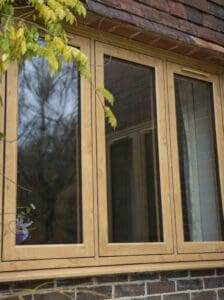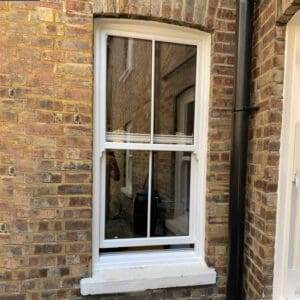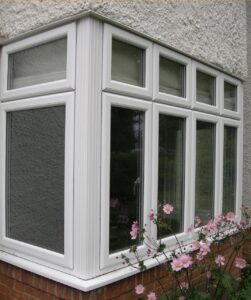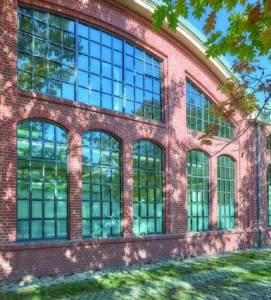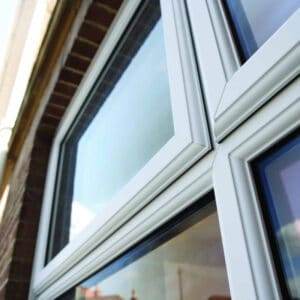Are you considering upgrading your home with new window frames? If so, it’s important to consider the environmental impact of your choices. When it comes to sustainability, aluminium window frames are a great option. Not only are they durable and low maintenance, but they also have a high recyclability rate. In fact, aluminium can be recycled repeatedly without losing its quality, making it a sustainable choice for your home. To learn more about the environmental impact of aluminium windows, read on.
Key Takeaways:
- Aluminium Window Frames are highly recyclable, making them an environmentally friendly choice for homeowners and businesses looking to reduce their carbon footprint.
- Recycling Aluminium saves up to 95% of the energy required to produce it from raw materials, making it a sustainable option for window frames in green living initiatives.
- Choosing Aluminium for window frames can contribute to a circular economy by supporting the recycling of materials and reducing the need for new production, ultimately conserving natural resources.
Advantages of Aluminium Window Frames
When it comes to choosing window frames for your home, aluminium is an excellent option for a number of reasons. Not only is it a sustainable and recyclable material, but it also offers a range of advantages that make it a popular choice for green living. In this chapter, we will explore the benefits of aluminium window frames and how they contribute to a more environmentally friendly lifestyle.
Durability and Life Span
Aluminium window frames are renowned for their durability and long life span. Unlike other materials such as timber or uPVC, aluminium is highly resistant to corrosion and weathering, making it an ideal choice for homes in coastal or exposed areas. The strength and rigidity of aluminium also means that your window frames will not warp, flex, or discolour over time, ensuring that they remain looking pristine for many years to come.
Energy Efficiency in Green Living
When it comes to energy efficiency, aluminium window frames are a top choice for environmentally conscious homeowners. The thermal performance of aluminium is unparalleled, providing excellent insulation properties that can help to reduce heat loss in the winter and prevent heat gain in the summer. This means that your home will be more comfortable and energy efficient, ultimately reducing your carbon footprint and lowering your energy bills.
The Recycling Process for Aluminium Frames
When it comes to the recyclability of aluminium window frames, the process is crucial in ensuring that the material is properly repurposed and does not contribute to environmental waste. The recycling process for aluminium frames involves several key steps, from the collection and sorting of aluminium waste to the melting and fabrication of recycled aluminium.
Collection and Sorting of Aluminium Waste
Once aluminium window frames have reached the end of their lifespan, they are collected as part of the recycling process. The first step involves sorting the aluminium waste from other materials such as glass and plastic. This is crucial to ensure that the aluminium can be properly processed without contamination. It is essential to properly separate aluminium waste to maintain its quality and purity for recycling.
Melting and Fabrication of Recycled Aluminium
After the aluminium waste is sorted, it undergoes a melting process to transform it into a reusable material. The recycled aluminium is melted down and then fabricated into new products such as window frames, allowing it to be given a new life. This process not only saves energy and resources but also reduces the need for mining and production of new aluminium, which has a significant environmental impact.
Challenges in Recycling Aluminium Window Frames
Recycling aluminium window frames can offer numerous environmental benefits, but it also presents certain challenges. It is important to understand these challenges in order to effectively address them and promote sustainable recycling practices.
Contamination and Quality Issues
When it comes to recycling aluminium window frames, one of the key challenges is contamination and quality issues. Aluminium frames can often contain non-aluminium materials such as rubber, plastic, or even glass, which can contaminate the recycling process. This can result in the production of lower quality recycled aluminium, which may not meet industry standards. Therefore, it is important to ensure that the collection and sorting processes are meticulous in order to maintain the quality of the recycled material.
Cost and Energy Considerations in the Recycling Process
Cost and energy considerations also pose challenges in the recycling of aluminium window frames. The process of collecting, sorting, and processing aluminium frames requires significant resources and energy. Furthermore, the cost of recycling may vary depending on factors such as transportation, labour, and market demand for recycled aluminium. These factors can make the recycling process more expensive and less economically viable, thereby affecting the overall sustainability of the practice. It is important to evaluate these considerations and explore ways to optimise the recycling process to make it more cost-effective while minimising energy consumption.
Case Studies: Success Stories in Aluminium Recycling
Recycling aluminium is not just a theoretical concept; there are numerous success stories that demonstrate the widespread positive impact of embracing recyclable aluminium. Let’s take a look at some of these inspiring case studies:
- Case Study 1: A residential building in London achieved a 95% recycling rate for its aluminium window frames, diverting over 10 tonnes of aluminium from landfills in just one year.
- Case Study 2: A commercial office complex in Manchester implemented a closed-loop recycling system for its aluminium frames, reducing its carbon footprint by 30% in the process.
- Case Study 3: An industrial facility in Birmingham adopted recyclable aluminium frames for its windows and doors, leading to a 50% reduction in energy consumption and substantial cost savings.
Residential Projects Embracing Recyclable Aluminium
More and more residential projects are recognising the importance of using recyclable aluminium for window frames. By choosing aluminium, you significantly reduce the environmental impact of your building while also enjoying the benefits of a durable and low-maintenance material. When you opt for recyclable aluminium frames for your home, you are making a conscious choice to support sustainability and reduce your carbon footprint.
Commercial and Industrial Adaptations of Recycled Aluminium Frames
The commercial and industrial sectors are also making strides in the adaptation of recycled aluminium frames for their buildings. Whether it’s an office complex, a retail space, or an industrial facility, the use of recycled aluminium frames offers significant environmental and financial advantages. By incorporating recyclable aluminium into your commercial or industrial project, you are not only demonstrating your commitment to sustainability, but also reaping the rewards of a highly durable, energy-efficient, and cost-effective material.
Green Living – The Recyclability of Aluminium Window Frames
With these considerations, it is clear that the recyclability of aluminium window frames plays a significant role in contributing to green living. By choosing aluminium window frames for your home, you are not only making an environmentally friendly choice but also supporting the circular economy by promoting the reuse and recycling of materials. This not only reduces the environmental impact of window frame production but also helps to conserve natural resources. So, when it comes to sustainable living, opting for recyclable aluminium window frames is a practical and responsible choice.
FAQ
Q: What is the recyclability of aluminium window frames?
A: Aluminium window frames are highly recyclable. In fact, aluminium is one of the most recyclable materials on the planet. It can be recycled repeatedly without losing its quality, making it a sustainable choice for window frames.
Q: How can I recycle aluminium window frames?
A: You can recycle aluminium window frames by taking them to a local recycling centre or arranging for a recycling company to pick them up. It’s important to ensure that the frames are free from any non-aluminium materials before recycling.
Q: Are aluminium window frames environmentally friendly?
A: Yes, aluminium window frames are environmentally friendly due to their high recyclability and the fact that recycling aluminium saves up to 95% of the energy required to produce it from raw materials. This makes them a sustainable choice for eco-conscious homeowners.
Q: What are the benefits of choosing aluminium window frames in terms of recyclability?
A: The key benefit of choosing aluminium window frames in terms of recyclability is that they can be recycled indefinitely without any loss of quality, reducing the need for raw materials and the energy required for production.
Q: Can aluminium window frames be recycled into new products?
A: Yes, aluminium window frames can be recycled into new products such as aircraft, automobiles, and other consumer goods. This further demonstrates the versatility and sustainability of aluminium as a building material.
Q: Are there any drawbacks to recycling aluminium window frames?
A: One potential drawback is the need to separate aluminium from any other materials, such as glass or plastic, before recycling. However, this can be easily managed with the right preparation and recycling processes.
Q: How can I ensure that my aluminium window frames are recycled responsibly?
A: To ensure responsible recycling of aluminium window frames, you should use a reputable recycling company that follows environmentally-friendly practices and has a transparent recycling process. Additionally, you can inquire about the destination of the recycled materials to confirm responsible disposal and use.

